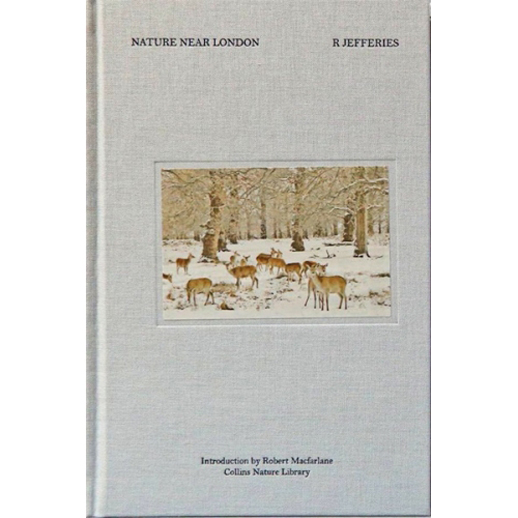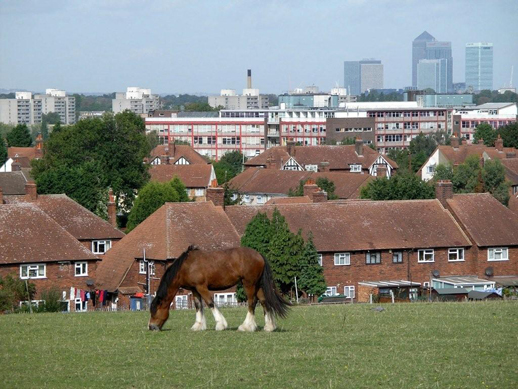Ken Worpole reviews the new edition of Richard Jefferies, Nature Near London, featuring an introduction by Robert Macfarlane, and published by the Collins Nature Library.
Until quite recently, when even the smallest of towns had a good second-hand bookshop with a section on ‘Topography’, it was very easy to come across the writings of Richard Jefferies, almost certainly the greatest naturalist writer of the 19th century. He was a novelist and essayist, whose writings were frequently recycled in new collections with new titles, so that it was impossible ever to keep up with his prodigious output. This collection of essays about the ‘nature’ to be found near London in the 1870s is published in a new series by Collins, edited by Robert Macfarlane, who has contributed a fine contextual introduction to Jefferies and his times, though, it has to be said, with the politics left out.
Jefferies was a man ‘who noticed such things’; a man with an eagle eye and an encyclopaedic knowledge of wildflowers, trees, birds and small mammals – and these he found everywhere in the suburbs of south London and Surrey, where most of his compatriots saw only streets, houses, ornamental gardens and rough fields. There are essays on woodlands, footpaths, nightingales, brooks, trout-fishing, crows, wild herbs and, towards the end, excursions as far afield as the south coast where he wrote his much-anthologised reverie, ‘The Breeze at Beachy Head’. It’s all good stuff, if occasionally repetitive, and is a book for dipping into, not reading in one go. The places he writes about are largely unpeopled, for as he suggests, one only has to step off a main road for a few yards to leave the world and others behind.
As a result, these essays avoid some of the more difficult questions Jefferies’ writings raised elsewhere regarding ‘the state of England’ – evinced by the conditions of its rural poor and his prescient anxieties about the decline of habitat and species. In this collection his harshest criticisms are for the fashion in stocking London’s large suburban gardens with acacias, cedars, laurels, planes and rhododendrons, all of which meant death to the birds. It is hard to imagine that two years after this collection was first published in 1883, Jefferies issued ‘After London or Wild England’, which imagined the city below water following an environmental catastrophe, its surrounding marshlands and heaths inhabited by marauding tribes. Two years later Jefferies himself died, in 1887, a sickly man worn out by life at the age of 38.
For me the best understanding of the complexity of Jefferies’ life and work comes in the pages devoted to him by Raymond Williams in ‘The Country and the City’ (1973). Williams charts the self-fashioning of Jefferies from a right-wing populist journalist growing up near Swindon, to a deeply passionate man who found in nature a cure for many of his sorrows, latterly becoming an environmental critic of enormous imaginative power. In essays such as ‘The Pageant of Summer’ there is no other writer on earth – excepting D.H.Lawrence perhaps – who describes how good it is to be alive when the hawthorn is in bloom and the yellowhammers are in full song. But he knew it might not, perhaps could not, last. In one of his final essays, written when seriously ill, he wondered whether it had all been a dream, and that ‘perhaps in course of time I shall find out also, when I pass away, physically, that as a matter of fact there never was any earth.’
Nature Near London is a good introduction to Jefferies, and certainly for appreciating the high energy sentences of a writer in a happier frame of mind. But he is a writer worth getting to know more widely, for he never wrote a dull sentence, and though occasionally over-wrought and even overbearing, his prose remains unique. Only John Cowper Powys comes near him for apprehending the spiritual and unworldly in the call of a bird, the darting movement of a fish deep in the shadows of a bridge, or the scent and colour of gorse or broom on a sunlit heath.
Nature Near London is on sale in the Caught by the River shop at the special price of £15.

